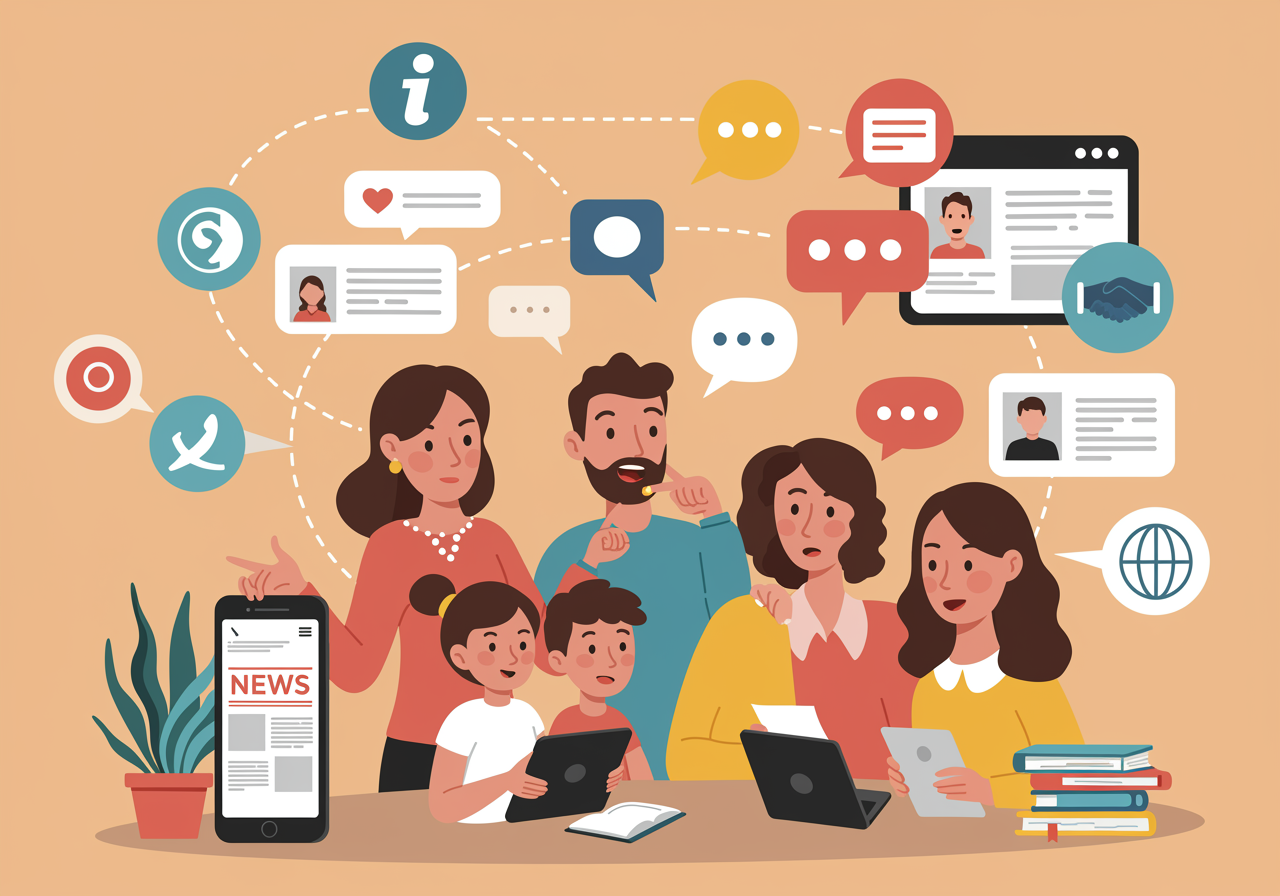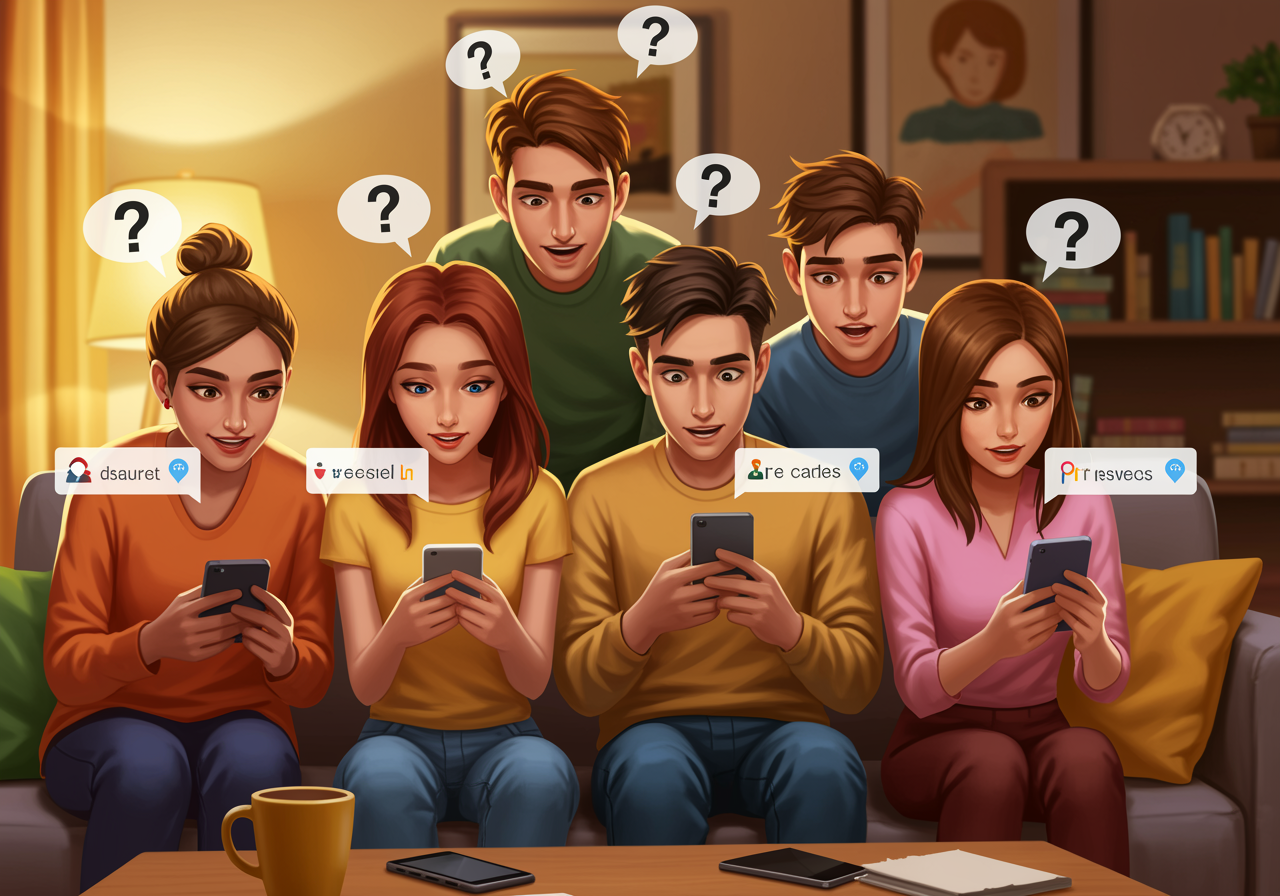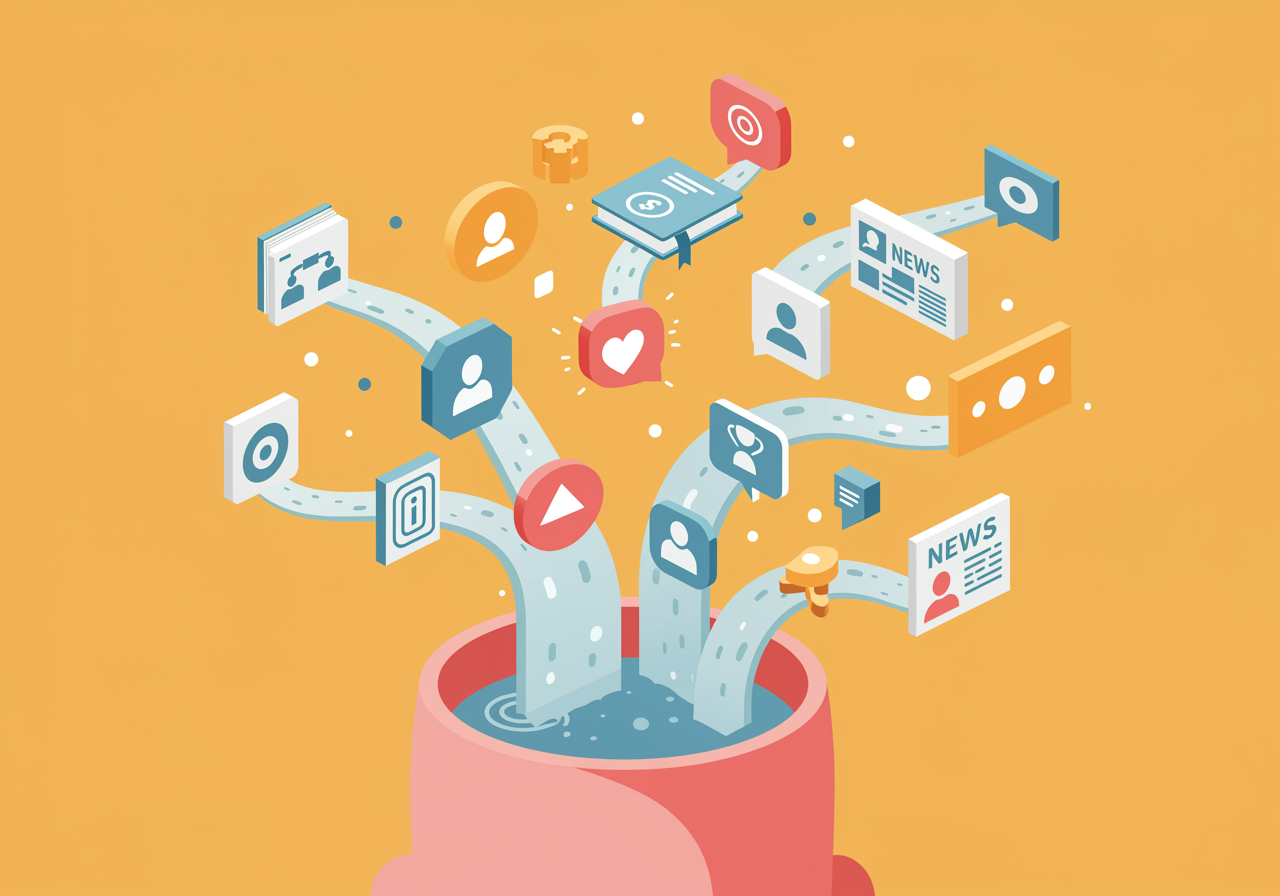Your Information Diet: How What You Consume Shapes What You Believe

Discover how the information around us becomes the lens through which we see the world
Ever wonder why you and your friend can see the same event totally differently? Let’s explore how our information habits shape our reality.
Overview
Think about your favorite social media feed – it's like a personalized magazine created just for you! But here's the wild part: that 'personalized magazine' is actually shaping how you see the world every single day. The way we gather information (from friends, apps, news, or even random videos) and share it with others creates invisible bubbles around our thinking. Understanding this process helps families have smarter conversations about what's real, what's opinion, and how to think critically about the flood of information we all swim in daily.

Understand in 30 Seconds
Get up to speed quickly
- Information = Reality Builder: The sources we choose and trust literally build our understanding of what's happening in the world. Different sources can make the same event look totally different.
- Algorithms Are Picky Eaters: Apps and websites use smart programs that only show you stuff similar to what you already like or believe, creating an 'echo chamber' where you mostly hear your own thoughts bounced back.
- Sharing Spreads Stories: When we share information, we're not just passing along facts – we're spreading stories, emotions, and sometimes mistakes that can travel faster than truth.
- Questions Are Superpowers: The best way to handle information overload is to ask 'Who says this?', 'How do they know?', and 'What might I be missing?' before believing or sharing anything.
Real Life Scenario
Situations you can relate to
Imagine you and your best friend both search 'Is pineapple on pizza good?' You might get results from cooking blogs that love creative toppings, while your friend gets results from traditional Italian chefs who think it's terrible. Same question, different answers! Now imagine this happening with bigger topics like climate change, politics, or even which college is best. The information we see first often becomes what we believe is true. Have you ever noticed that your TikTok feed seems to 'know' exactly what you like? That's because it's learning from every video you watch, like, or skip. Over time, you start seeing a very specific slice of the world that matches your past interests, but you might miss out on other perspectives entirely.

Role Play
Spark a conversation with “what if” scenarios
What if you could only get news from one source for a month?
- Role play: Each family member picks a different news app or website and compares how the same story is told differently. Share what you noticed about tone, focus, and missing details.
What if you had to fact-check everything before sharing it?
- Role play: Practice being 'information detectives' by researching one viral claim or meme together. See how many reliable sources you can find that confirm or deny it.
What if algorithms didn't exist and you had to find information manually?
- Role play: Try searching for information about a topic using only library books, encyclopedias, or asking real experts. Compare what you find to online results.
FAQs
Frequently asked questions people want to know
How do I know if a source is reliable?
Look for sources that cite their information, have real experts involved, and don't use overly emotional language. Cross-check with other trusted sources to see if they agree.
Why do my friends and I see different things on social media?
Social media algorithms create personalized feeds based on your past behavior, location, and connections. It's like having different TV channels that only show what each person seems to prefer.
Is it bad to stay in an 'echo chamber'?
It's natural, but it can limit your understanding. Actively seeking different perspectives helps you make better decisions and understand other people's viewpoints.
Examples in the Wild
See how this works day to day
- During the 2020 election, people using different social media platforms saw completely different stories about the same events, leading to vastly different beliefs about what actually happened. (Pew Research Center Studies on Social Media and News)
- The 'Blue Dress vs. Gold Dress' viral phenomenon showed how the same image could look completely different to different people, demonstrating how perception affects reality. (Scientific American, Vision Research Studies)
- Students researching climate change using Google in different countries get different top results, showing how location affects information access. (MIT Technology Review, Search Algorithm Studies)
- The rapid spread of both accurate and false information during COVID-19 showed how sharing speed can outpace fact-checking. (Reuters Institute Digital News Report)
In Summary
What you should know before you start
- Information sources act like ingredients in a recipe – they determine what your 'reality meal' tastes like
- Algorithms create personalized bubbles that can limit our view of different perspectives
- Sharing information is like being part of a giant telephone game where messages can change as they travel
- Asking good questions and checking multiple sources helps us think more clearly about what's really true
Pro-tip for Parents
You got this!
When your teen shares something surprising they saw online, resist the urge to immediately correct them. Instead, get curious together! Ask 'Where did you see this?' and 'What made it seem believable?' Then explore the topic together. This approach builds critical thinking skills without making them feel attacked for what they shared. Remember, we're all learning to navigate this information-rich world together.

Keep an Eye Out For
Find these examples in everyday life
- Trending topics on social media that seem to have different 'sides' – perfect opportunities to explore multiple perspectives together
- Breaking news stories where details change over time – great examples of how information evolves
- Viral videos or claims that seem too good (or bad) to be true – ideal for practicing fact-checking skills
- School research projects where you can discuss reliable vs. unreliable sources
Explore Beyond
Look up these related research topics
- How does confirmation bias affect the way we process new information?
- What role do emotions play in determining what information we trust?
- How has the speed of information sharing changed throughout history?
- What are the positive and negative effects of personalized algorithms on learning?